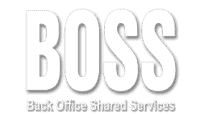Table of Contents
Introduction
Chapter 1 – What are Systems and Why do You Need Them?
Chapter 2 – A General Outline to Creating Systems
Chapter 3 – The Big Picture System
Chapter 4 – The Decision System
With your Big Picture in place you now have a compass for how you make decisions. For example, if your Big Picture document highlights the importance of customer service to your business, then you now know that your decision-making is always going to lean towards doing whatever you can to make your clientele happy.
Your Decision System is not going to be a serial process – it’s not a document where you go from Point A to Point B and onwards. Instead it’s a series of points that all must be considered at the same time.
Your points should be concise. You don’t want ambiguity – you want a clear and easily understood template for both yourself and your team to follow when they have a decision to make, especially if there’s a timetable involved in the decision.
What’s the Problem?
Decision-making models accomplish two major tasks. First, they offer guidance to help you make a decision. Second, it helps to reinforce the decision after you’ve dealt with the problem.
Your Decision System is going to be about 2 to 4 pages that will give you both benefits. These guidelines revolve around what you believe makes for an excellent business. This means your Decision System is going to be particular to you.
- Our decisions should adhere to our Big Picture System, Decision System, and Day-by-Day Processes.
- We are in the business of customer service, you just happen to sell X.
- We follow our documented procedures in order to have a completely clear picture of where work stands.
- Our goal is to empower employees to get their work done. An employee with the ability to complete tasks is our most valuable asset.
- Management’s goal is to fully enable employees. We will reward employees for performing at their full potential. This quality in employees means quality service for our customers.
- We build, maintain, and enhance systems so that we prevent problems before they happen.
- Nobody should feel intimidated for bringing up problems with our systems – in fact they should be thanked. An employee who brings a problem to light has given us the chance to improve our systems, making us even better.
- We prefer to be experts of a few products and/or services rather than mediocre Jack-of-All-Trades.
- The simplest solution is usually the best solution.
- Money saved can have a very real positive impact on the company, which means it benefits our employees and clients. Money is not to be devalued just because it is “company” money.
- While we create systems to deal with all everyday procedures, we want to avoid over-documenting for rare difficulties. This leads to suffocating bureaucracy and slows down employees’ ability to look up necessary documents.
- Saying “no” to something can be a good thing – if someone suggests that a step in a process or an entire system is wasteful then there is nothing wrong with considering eliminating it.
- The documents must be both thorough and simple enough for a new hire to find them and use them to get into a task right away.
- “Now” is better than “later”. This includes smaller actions like answering emails or filing paperwork – leaving these for later can add up or even be forgotten, causing lag in the overall business.
- The most important tasks are handled first.
- We double-check everything. “Double-checking” is not an ephemeral notion – it is built in as part of our systems.
- Our work spaces are kept organised and clean.
- Training for employees is a system.
- Deadlines matter – too many other parts of the company may be depending on a deadline being met so they can accomplish their own schedule. If legitimate outside delays intrude we should inform everyone of the new deadline a.s.a.p.
- If something breaks down, fix it now, or call in someone to get it fixed. It doesn’t matter if it can limp along until later – now is better.
- Avoid multitasking when possible – a single completed task is of more benefit than a bunch of tasks that miss their deadlines.
- And so on.
To be continued, look for your next BOSS email……




